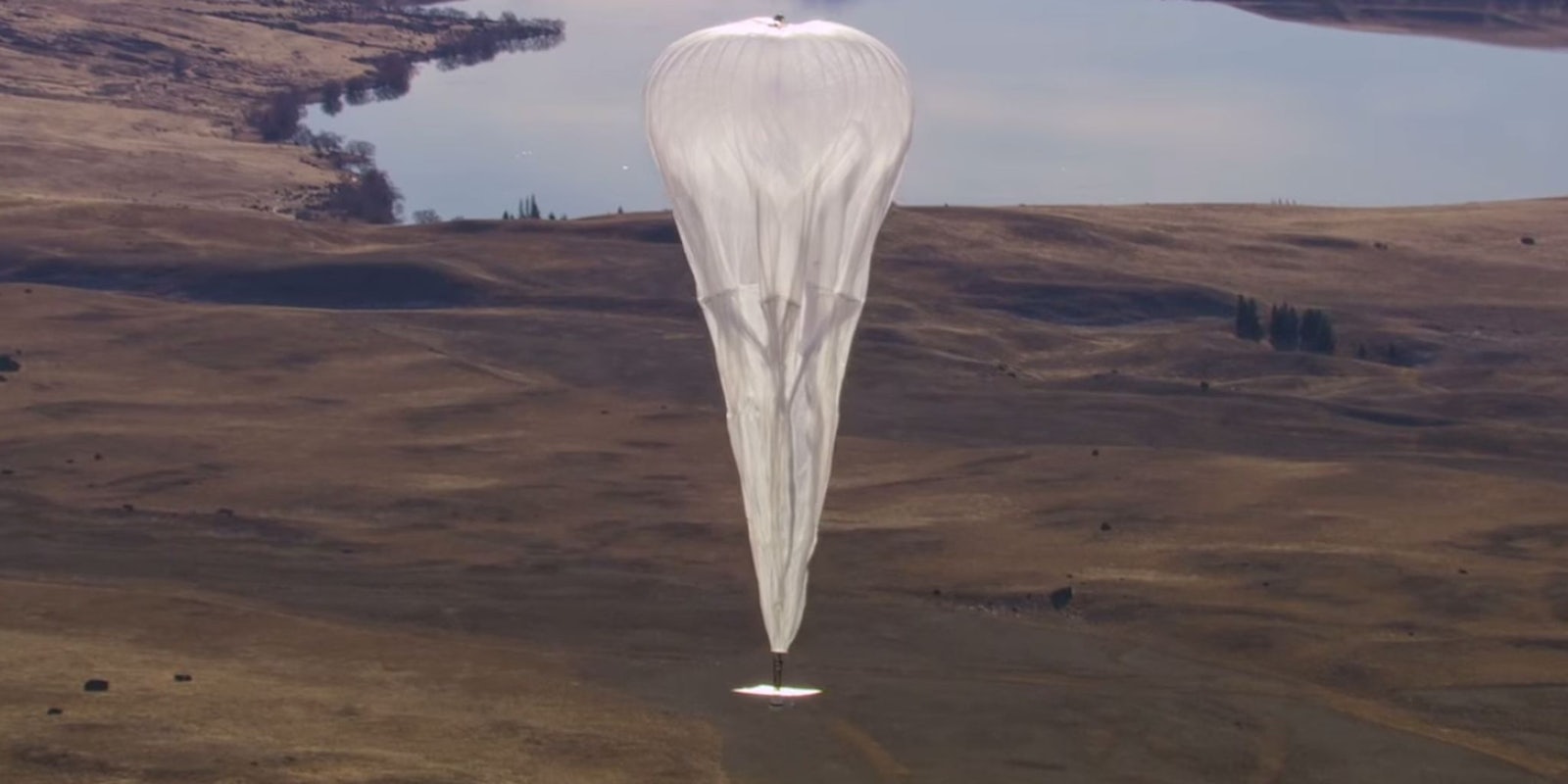Project Loon, Google‘s ambitious plan to bring the Internet everywhere using networked high-altitude balloons, is launching in Sri Lanka. The island nation in the Indian Ocean is the first country to officially receive Internet from Google’s balloons, which have been tested in New Zealand, New Mexico, Argentina, Brazil, and Chile.
Google is working with communication partners in the region to deliver LTE connectivity, and operations will begin in March, according to Muhunthan Canagey, head of the Sri Lankan government’s information and communication technology agency.
Foreign Minister Mangala Samaraweera announced the country’s new Internet partnership on Wednesday and said he was “proud to declare that we are at the cusp of a reclaiming our heritage of being connected to each other and connected to the world.”
“In a few months,” he said, “we will truly be able to say: Sri Lanka. Covered.”
Sri Lanka has more than 20 million people, but only 2.8 million have mobile broadband connections, and there are only 606,000 fixed Internet connections in the country. Canagey told the Agence France-Presse that the new partnership would make Internet connectivity more affordable and allow more people to get online.
Google isn’t the only company trying to bring Internet to people through high-flying objects. Facebook’s Connectivity Lab is building drone- and satellite-based networks that will beam Internet down to areas of the world with limited access to traditional data networks.
Facebook‘s Internet.org initiative is already partnering with mobile providers to give users an on-ramp to the Internet; the service free to use things like Facebook and online government portals, but to go any further, people must pay.
Facebook CEO Mark Zuckerberg alluded to the company’s Connectivity Lab efforts in an earnings call Wednesday, though he did not describe specific plans.
“Our Connectivity Lab is working on new technologies for connecting communities that include drones, satellites, and laser communication systems,” he said. “We’ll be sharing more of our progress here very soon.”
While Google and Facebook’s drone- and balloon-based Internet programs might seem like altruistic, technically challenging undertakings that engineers and designers are anxious to experiment with, they also carry tremendous benefits for the tech companies. The more Sri Lankans who join the Internet-connected community, the more potential buyers of Android phones (and users of Facebook) there will be.
As Internet access spreads, so too does the reach of profitable advertising.
Photo via Project Loon/YouTube


